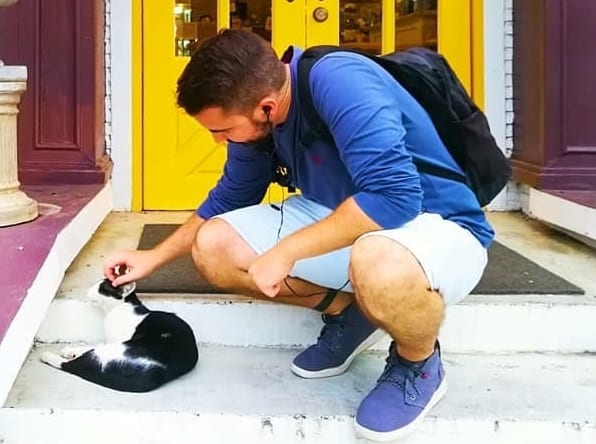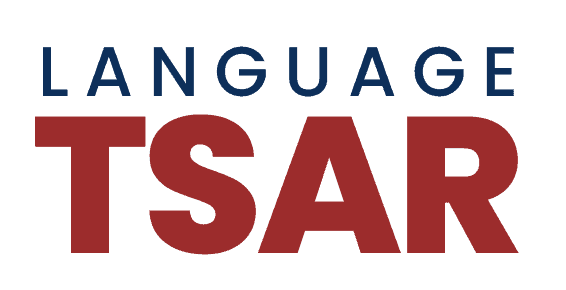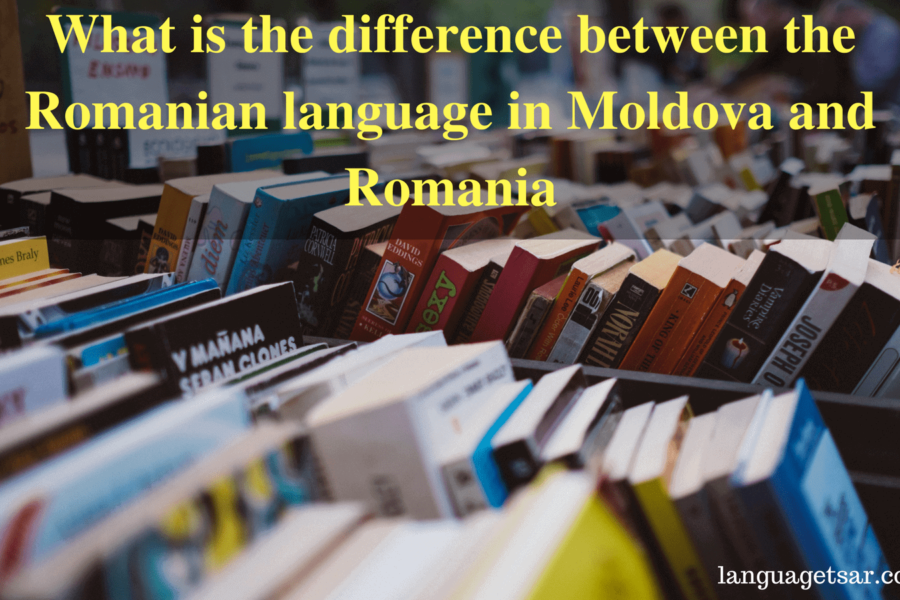Romanians and Moldovans share a lot of customs and traditions. Many historical events have both united and separated Romania and Moldova.
Both countries were founded by the Greco-Dacian people.
The question in this article is: do Romanians and Moldovans speak the same language?
Until 2013, the official language of the Republic of Moldova was ‘Moldovan’, a direct consequence of the historical events related to the Russian annexation. Back in the 20th century, the Soviet Union tried to invent the “Moldovan” language by translating Russian words into Romanian. For example, самолет (samoleot; plane) –singurozburător (flying itself).
It was an attempt of changing the ethnolinguistic consciousness of Moldovans. Many of them have fallen prey to the lie and have treated it as the truth. Moldovans were convinced that they speak a different language to those in Romania.
The “Moldovan” language is analogous with “Transylvanian”, spoken in Romania, meaning a ‘dialect’.
It was a great shock when I went to Romania to study and I was asked by a classmate to translate “I love you” in Moldovan. We actually speak the same language!
Today, officially both Romania and Moldova speak the Romanian language.
Formally, the Romanian spoken in Moldova and Romania does not differ. Although, informally there are major differences due to the widespread use of words of Russian words origin and of course, the accent.
The history of the “Moldovan” language begins in 1812, when a part of Moldova was annexed to the Russian Empire, later called ‘Bessarabia’.
At the end of the First World War; Transylvania, Bessarabia, and Bukovina joined together with the Kingdom of Romania, thus forming a larger Romania.
This union, however, did not last long because Bessarabia was annexed by the Soviet Union in 1940.
The Republic of Moldova became a sovereign and independent state only on May 27, 1991, with the signing of its Declaration of Independence.
As a result of roughly 200 years of Russian rule, the vocabulary of the citizens of Bessarabia has been greatly influenced. If a Romanian and a Moldovan meet in an informal environment, there is a chance they will not understand each other, even though, formally, they speak the same language.
Both Romanians and Moldovans are aware of these differences, thus the creation of Moldovan-Romanian “dictionaries”.
A
Abaldi- be amazed, it comes from the Russian word обалдеть;
Abij-offense (обидеть);
Abisci- promise (обещать);
Afighi- amazed (офигеть)
C
Cadru- a funny man (shot, comes from the Russian word кадр);
Caloş bîhlit – a shoe that smells ugly;
Ciainik – teapot (kettle, Чайник);
Cicăcios – disrespectful guy;
Cărăbuş – carabineer (Карабин).
Not all the words can be translated directly or match the meaning of the word they come from.
As mentioned above, the language spoken in Moldova is a dialect of the Romanian language.
Romanian is divided into five sub-dialects: Moldavian, Wallachian, Banat, Crisan and Maramures. Each of these sub-dialects has their regionalisms that can be misunderstood in other regions of Romania or in Moldova.
Moldovan regionalisms:
Păpuşoi – porumb (corn);
Harbuz – pepene verde (watermelon);
Supă – ciorbă (soup);
Scurtă – geagă (coat);
Etatajul întâi – partier (ground floor);
Bătută (bitocik) – șnițel (schnitzel);
Mâţă – pisică (cat);
Ogradă – curte (yard);
Pelincă- scutec (diaper);
Poloboc – butoi din lemn (wooden barrel);
Prispă – terasa în fața căsei (porch);
Ogheal – plapumă (blanket);
Bortă – gaură (hole);
Perje – prune (plums); and others.
Banat Regionalisms:
Marve – animale (animals);
Răchie – ţuică (plum brandy);
Huţuluş – lagăn (swing);
O ţâră – un pic (a little);
Cindă – sufragerie (dining room);
Credenţ – dulap de bucătărie (kitchen cabinet);
Goşci – musafiri (guests);
Drod – sârmă (wire);
Măramă – batic (kerchief), and others.
Sometimes even the meaning of the words can differ. For example, “strașnic ” is the superlative of good and it means something very good, wonderful
In Russian страшно (strashno) means something frightening or scary. Most Moldovans use this word in a negative or unpleasant context with the meaning taken from Russian and not with its Romanian one. So there may be a misunderstanding between a Moldovan and a Romanian when using the same word but in different contexts.
In order to understand the differences between the Romanian language in Moldova and Romania better, I can give you the following example.
A friend of mine from the Peace Corps studied Romanian before he came to Moldova. The Romanian he studied and the he heard were completely different languages.
In order to understand Moldovans in an informal setting you should know Romanian, Russian and live in Moldova for at least a small amount of time. We use a lot of regionalisms and Russian words such as those listed above.
In conclusion, the Romanian spoken in Moldova and Romania differs. The best way to understand the differences is to live in both countries. As most people know, cultural exposure accelerates the acquisition of a foreign language.
If you have the opportunity to do so, visit both Moldova and Romania. The history, culture, cuisine and landscapes will impress you a lot.

Michael has been an avid language learner and traveler for many years. His goal with LanguageTsar is to discover the most fun and effective ways to learn a language. He is currently learning Japanese, French and Indonesian.



Comments are closed.